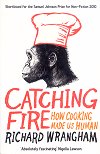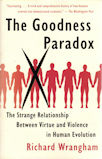Once our ancestors began cooking their food, the brain began to grow, and time once spent chewing tough raw food could be used instead to hunt and to tend camp. Cooking became the basis for pair bonding and marriage, and even led to a sexual division of labour.
Tracing the contemporary implications of our ancestors’ diets, this stunningly original theory of human evolution sheds new light on how we came to be the social, intelligent and sexual species we are today.

